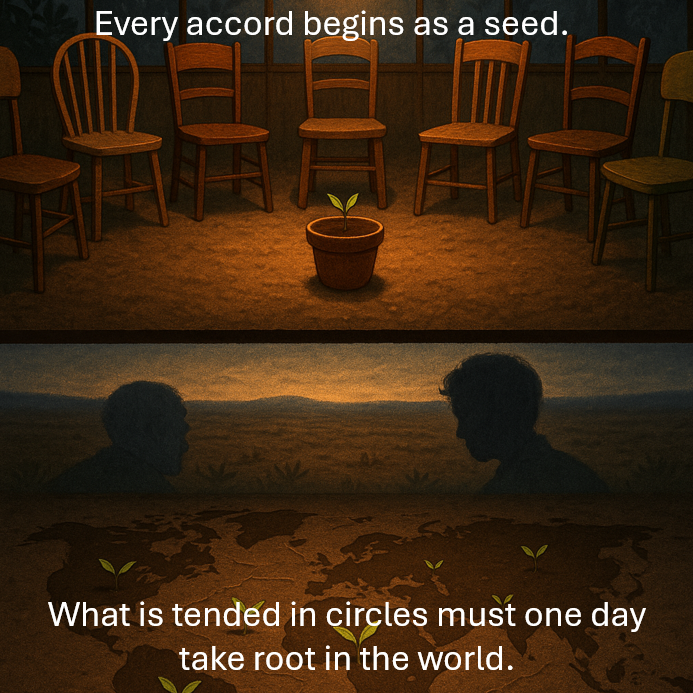
The last shaft of twilight had faded, leaving the greenhouse glowing like a lantern in the dusk. Inside, the students’ voices still murmured as they finished their work, but outside the wall, Emil knelt over the fragile basil shoot he had planted. His hands lingered in the soil, steady yet trembling, as though he were holding not just a plant, but a question.
Can what we’ve built here survive beyond glass walls?
Behind him, the repaired panes shimmered with reflected light, a reminder of how far they had come—of the rivalries bridged, the trust sown, the ledger written in soil and sweat. But the world outside the greenhouse waited, larger and harsher. The fights that once tore apart clubs and friendships were already giving way to a greater demand: the whole school looked to them now, asking not for growth but for governance.
Whispers spread through the halls: Who will lead? How will decisions be made? Teachers no longer interfered, content to let the Forum of students test itself. Parents debated in quiet corners. And within the student body, expectations swelled like a tide pressing against fragile dikes.
Emil brushed the dirt from his palms and looked back at the glowing glass. Inside, Priya’s ledger lay open, its latest entry no longer about seedlings or fittings but about mercy, patience, and choice. It read like a law.
And suddenly Emil understood: the garden had only been the first draft. The soil had taught them, yes, but the true planting was just beginning. They would have to carry the same principles into rules, assemblies, and accords.
The basil shoot swayed in the evening wind. Emil bent close, whispering almost unconsciously:
“You are the first seed.”
He rose to his feet, his shadow stretching long across the soil. Behind him, the greenhouse glowed. Ahead of him, the school waited.
And in between, a fragile accord had begun to take root.

